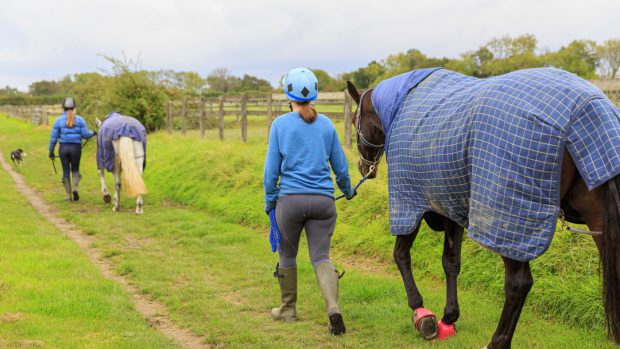Choosing which horse insurance policy to take out isn’t an easy decision, but, as a horse owner, it’s an important consideration. With all the different packages and bands of equine insurance to pick from, insuring your horse can be a confusing process.
As vet costs have risen, so have the price of most people’s polices. While there are budget equine insurance policies out there, it’s important to read the small print and ensure they are suitable for your needs. Vet fees are, unsurprisingly, the biggest pay out for insurers to horse owners and you may find a cheaper policy offers limited cover. So, although it may be tempting to choose a cheaper premium, often it’s not always the most cost effective decision in the long run.
It’s also important to remember that ‘one-size-fits-all’ doesn’t apply when it comes to horse insurance, as each horse and situation is different. Many insurers will allow horse owners to select the types of cover that suit their needs and by building an insurance policy that is individual to you, you should end up with cover that protects your needs if something does go wrong.
Article continues below…
You might also be interested in:

7 things you really need to know about equine insurance

Subscribe to Horse & Hound magazine today – and enjoy unlimited website access all year round
Top tips when choosing equine insurance
- Don’t choose your equine insurance by price alone.
- Ask your vet and friends who they’d recommend.
- Read the small print — it’s vital that you know exactly what you’re getting for your money. Some companies won’t cover diagnostics or complementary treatments, so don’t get caught out.
- Shop around by ringing at least three different companies
- It’s wise to choose an equine insurance specialist, as non-specialist companies may not have the necessary experience when dealing with equine claims.
- Look out for possible discounts available when you buy online, or consider paying the complete premium in one lump instead of in stages by direct debit, which normally costs more.
- Insure your horse for its current value — the lower your horse’s value, the lower the premium price, but if you reduce the value you won’t get back what he was worth should the worst happen.
- Finally, here are some useful questions to ask when choosing an equine insurance policy.
Would you like to read Horse & Hound’s independent journalism without any adverts? Join Horse & Hound Plus today and you can read all articles on HorseandHound.co.uk completely ad-free.




